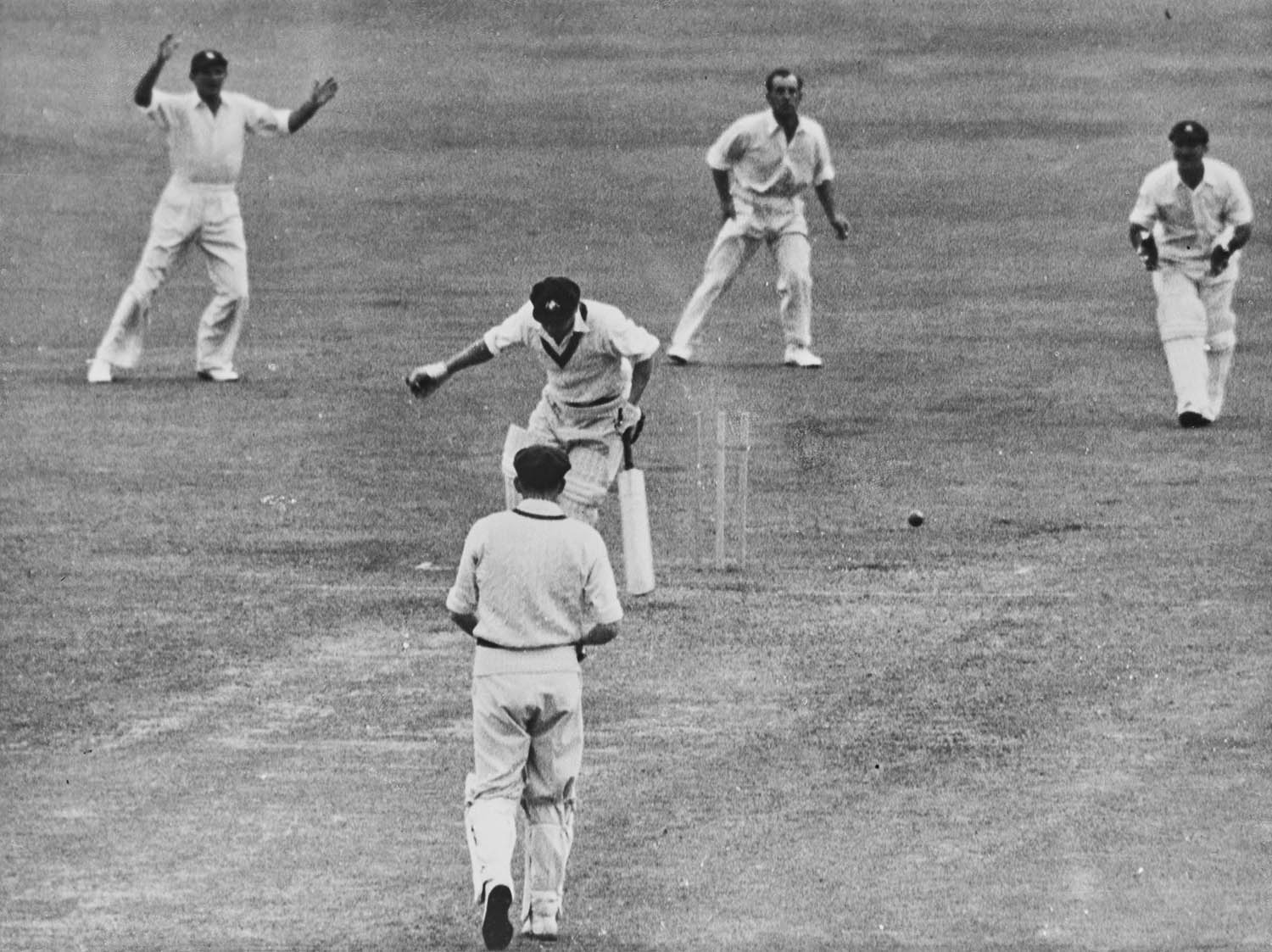In September 1954, the Observer sent Alan Ross to cover England’s defence of the Ashes in Australia. It was a six-month gig, but not an onerous one. “My duties were the extremely pleasant ones of describing perhaps the most remarkable Test series in living memory,” the cricket correspondent wrote in his tour diary, Australia 55. “Incidentally, the wines of Australia ... were a revelation.”
Ross’s travelogue, the most colourful of the eyewitness accounts, was one of a dozen contemporaneous books on what remains one of England’s greatest Ashes victories. They include works by John Arlott, EW Swanton and Margaret Hughes, the first female member of cricket’s press pack.
Such a literary legacy might intimidate any author retelling the story 70 years on. But Richard Whitehead, veteran Times journalist, has turned it into a strength. A seven-page bibliography sounds the depth of his research, from the correspondence of tour manager Geoffrey Howard to the team masseur’s diary, and the narrative is so fresh and detailed that you feel it might have happened yesterday.
Winning the Ashes in Australia is vanishingly rare, and whenever an England team heads Down Under – as they will this winter – the few success stories are dredged for comparisons. The Bodyline controversy is relitigated. The legend of John Snow – the one who is neither a news anchor nor a Game of Thrones character – is reclaimed. But the achievement of Len Hutton’s men is unique: no other England touring side has won the Ashes after being thrashed in the first Test.
Whitehead begins his book with that first, bruising defeat. England arrived for the first Test at Brisbane as holders of the all-important urn (the contest’s tiny trophy) but captain Hutton made a devastating tactical error before play had even started, choosing to bowl first on a good batting pitch.
There are quirky moments: sherry and eggs downed in a drinks break, a spaniel on the pitch
There are quirky moments: sherry and eggs downed in a drinks break, a spaniel on the pitch
It didn’t help that his fielders kept dropping catches. At one stage the captain looked so distraught that Alec Bedser, who spent the second world war in the RAF, had to remind him that at least there were “no bloody bombs dropping”.
Nor were things looking up when England were bowled out for 154 on the first day of the second Test. The game turned into a low-scoring thriller. It also launched a fast bowling talent, Frank “Typhoon” Tyson, who would, along with the batting young gun Colin Cowdrey, come to star in the five-match series.
Whitehead has a keen eye for the drama of the games, as well as their quirkier moments (Tyson and Brian Statham downing sherry and eggs at a drinks break, a spaniel acting as a substitute fielder). His 360-view also helps us approach some of the era’s most famous figures in the round – none more so than Hutton, whose near-crack-up before the third Test at Melbourne remains one of that series’ most enduring legends.
The background to the series offered its own intrigue, including an attempted captaincy putsch when class-conscious administrators at the MCC, cricket’s governing body, tried to replace Hutton, a professional, with gentleman amateur (and trainee vicar) David Sheppard. There’s just a bit too much of it early on – including details of selections that never came to pass – which impedes the pace rather than builds suspense.
The prose, however, is assured. There are some charming turns of phrase – like the description of Statham running in “like a commuter forlornly chasing a bus accelerating away into the distance”. But Whitehead seems more comfortable providing the perfect foil for his predecessors’ most sparkling lines, such as Ross’s immortal description of England wicketkeeper Keith Andrew: “He takes Tyson’s thunderbolts as a butler might accept a calling card, with no notice at all.”
Newsletters
Choose the newsletters you want to receive
View more
For information about how The Observer protects your data, read our Privacy Policy
You can tell how much Whitehead reveres the newspapermen of the past (some of his best passages are reserved for the “thrumming” pressbox). His book is a worthy contribution to their tradition. It’s also, should you have the space, a neat sequel to sit by Who Only Cricket Know, David Woodhouse’s masterly reconstruction of England’s 1953-54 West Indies tour.
Victory in Australia: The Remarkable Story of England’s Greatest Ashes Triumph 1954-55 by Richard Whitehead is published by Bloomsbury Sport (£22). Order a copy from observershop.co.uk to receive a 10% discount. Delivery charges may apply
Photograph by Fox Photos/Hulton Archive/Getty Images

